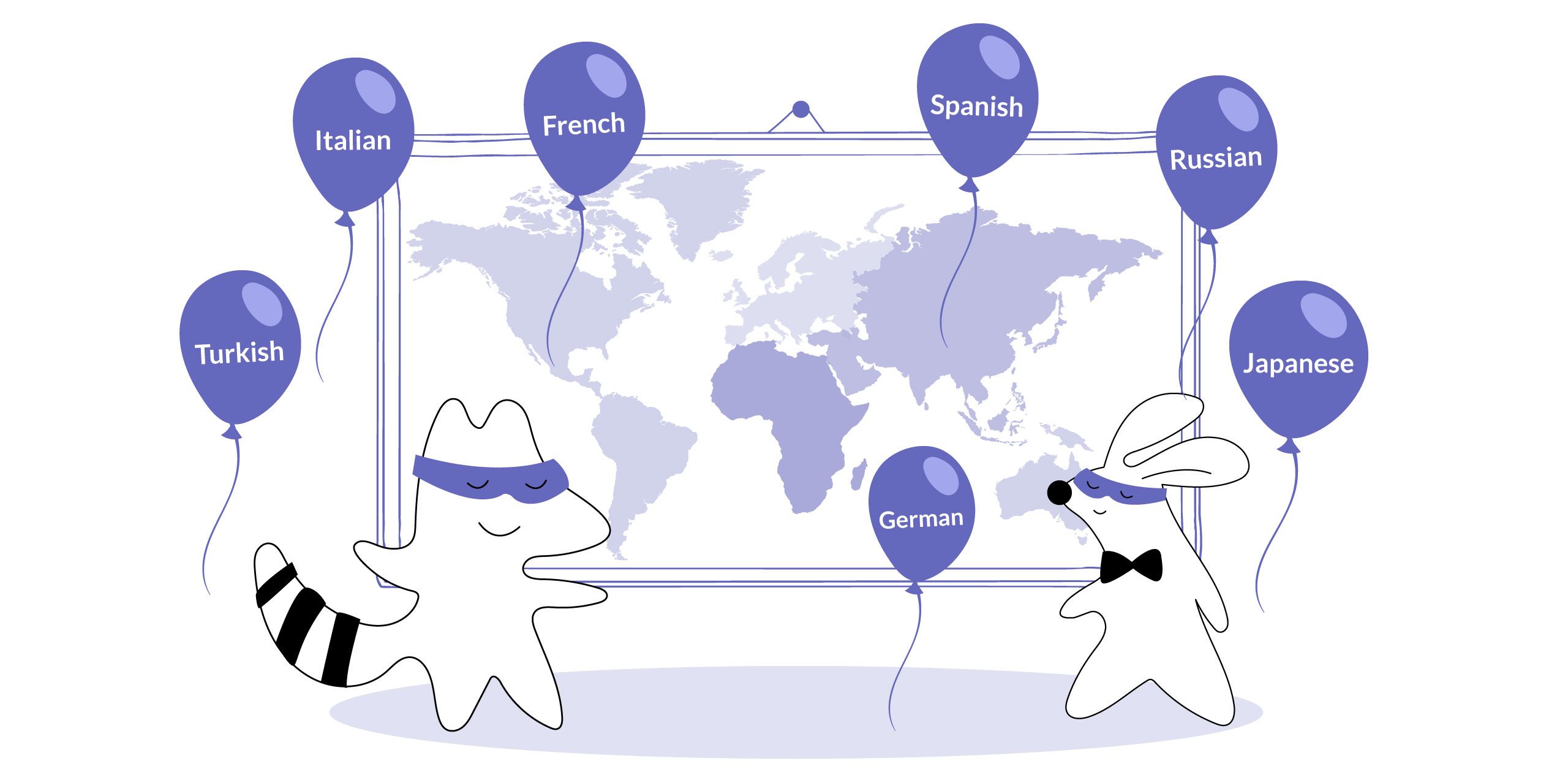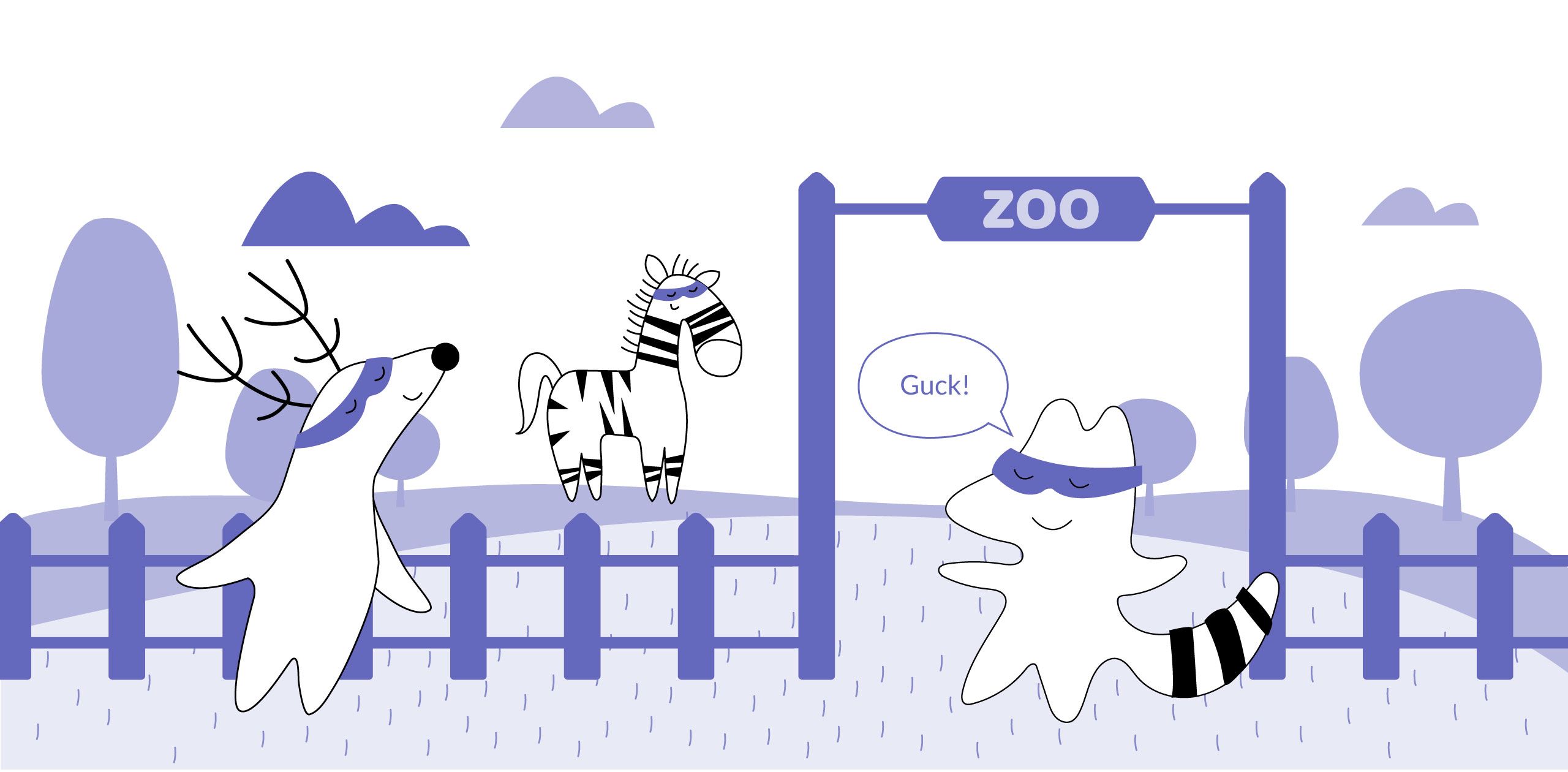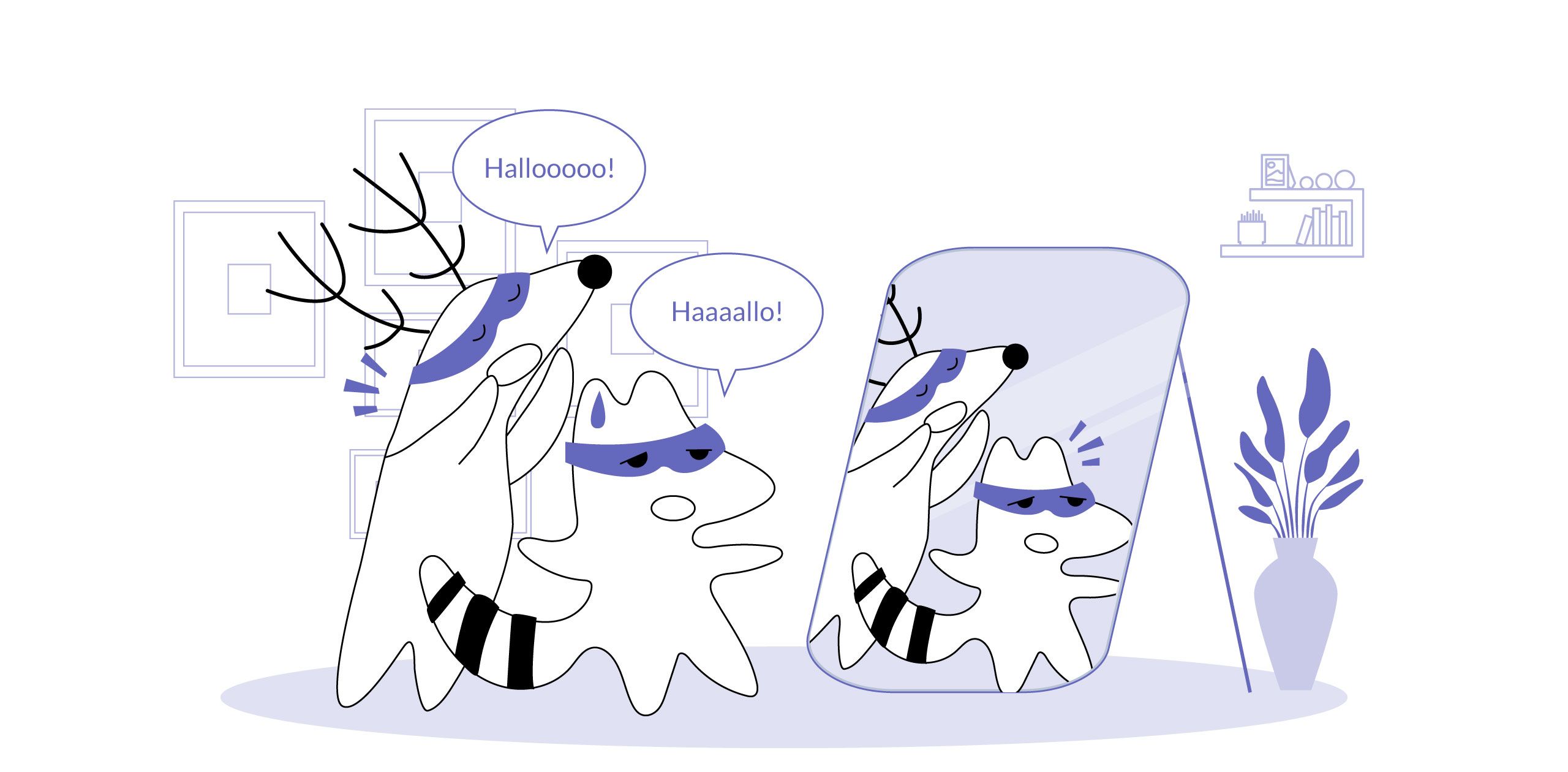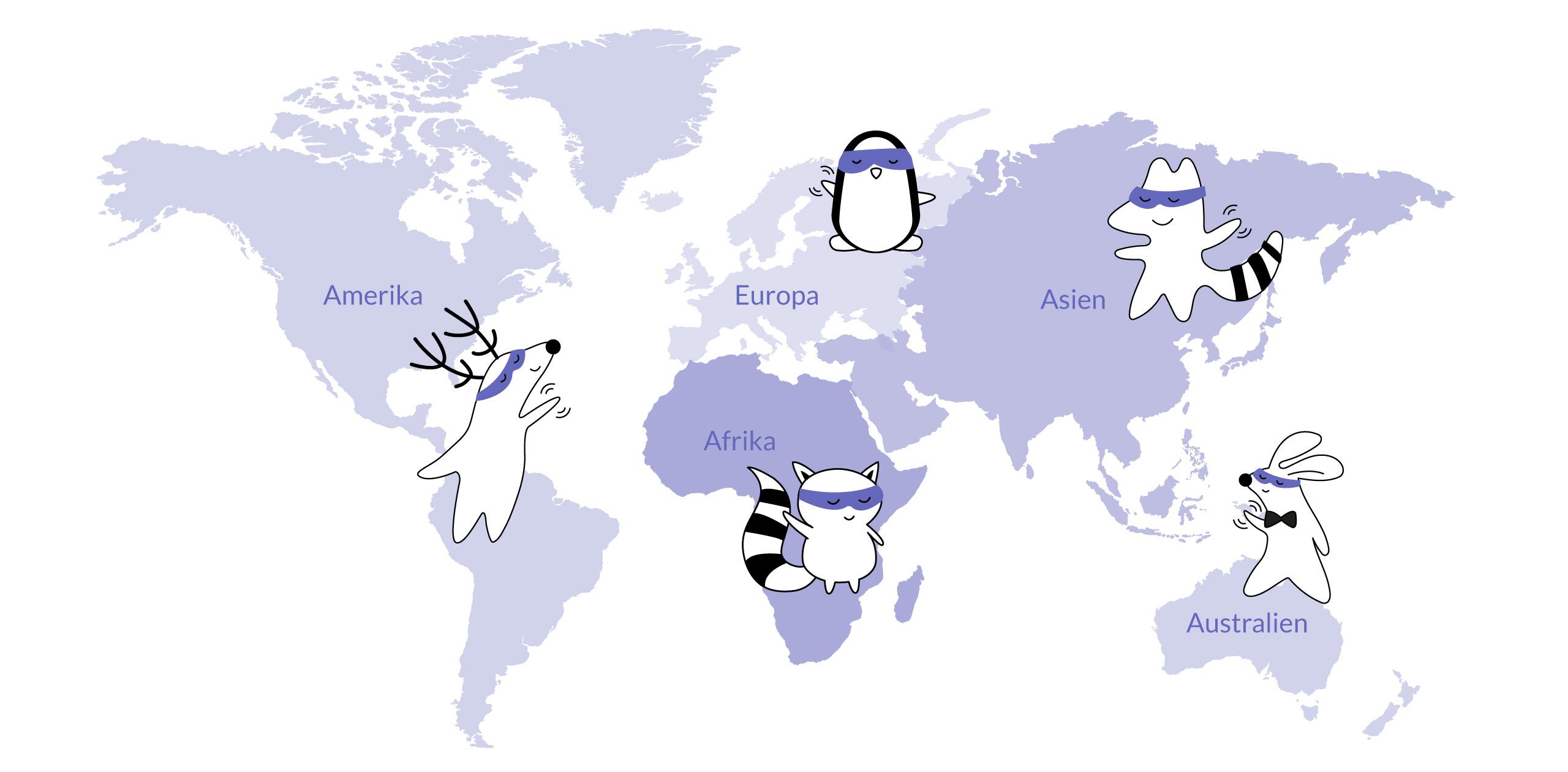
Traveling around the world, you might have noticed that your country's name looks and sounds different in other languages. Sometimes, there is just a slight difference in spelling or pronunciation, but sometimes it seems to have a completely different name.
For example, in some Roman languages, "Germany" starts with an "a." In Spanish it is called "Alemania", in French it's "Allemagne," and in Portuguese it’s called "Alemanha." As you might know Germans call the country "Deutschland," which is again a completely different name.
Many first conversations with people are about nationality, as asking someone they are from can be an ice breaker. As a result, you should look at what other countries' names are translated to the language you want to learn.
We want to help you prepare for those conversations (and trust us, you will definitely have them when visiting Germany), so this article is about country names in German. We will show you some tricks, which can help you understand the way German works and boost your memory. Read on!
Learn German with Langster
Let's Start With the Continents in German
While some places in the world have different names in each language, some have international names. We can see it through an example of the world's continents, which look similar in almost every European language.
The Germans call them:
German
English
Afrika
Africa
Australien
Australia
Amerika
America
Asien
Asia
Europa
Europe
To complete the map, we have the two earth poles that in German are called "Nordpol" (north pole) and "Südpol" (south pole). The Südpol is also known as "Antarktis" (Antarctica).
German
English
Nordpol
The North Pole
Südpol
The south pole
Antarktis
Antarctica
As people use the cardinal directions a lot when they talk about places in the world, we will use this opportunity and have a look at how they work in German.
The Four Cardinal Directions in German
In the example above, you can already see the German words for "north," which is "Norden," and "south," which is "Süden." In "Nordpol" and "Südpol," the words get shortened a little bit because they are paired with another noun. The same happens with North and South America, called "Nordamerika" and "Südamerika" in the German language.
The last two directions are "Osten" (east) and "Westen" (west). You will also find them in their short forms sometimes, as in "Westpapua" (West Papua).
German
English
Norden
North
Süden
South
Osten
East
Westen
West
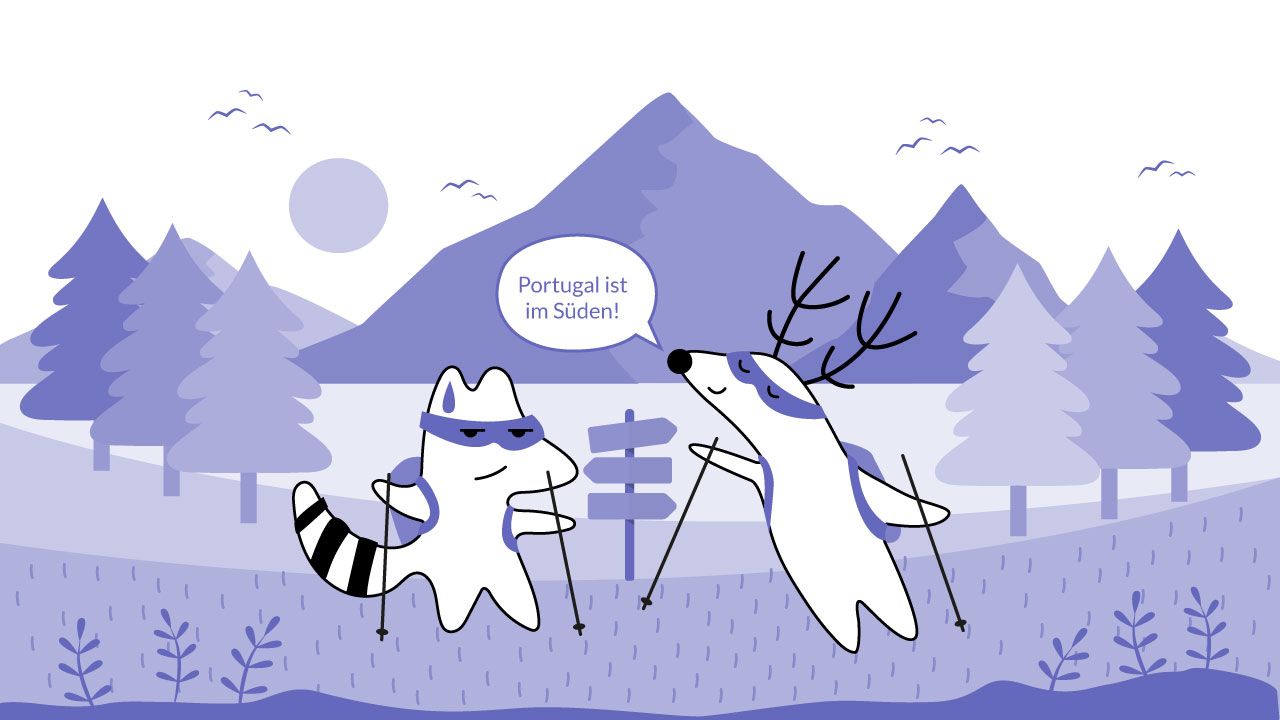
To express that a place is situated in a particular direction or if when talking about regions, you will use adjectives in German that derive from the cardinal directions. They all have the suffix -lich:
- nördlich (north of/ northern)
- östlich (east of/ eastern)
- südlich (south of/ southern)
- westlich (west of/ western)
For example:
German
English
Frankreich liegt nördlich von Portugal.
France is located north of Portugal.
You might notice that the vowel changes to an Umlaut in the first three adjectives. We will talk about this phenomenon in more detail in a different article. For now, let's focus on the new vocabulary.
Country Names - You Already Know Some
As we said, some countries in this world have international names, which means learning them is very easy. There are many countries that in German look like the English ones, and the only thing that is sometimes different is the spelling.
Look at "Portugal," "die Ukraine," "Japan," "China," "Kanada," and "Irland." The terms sound almost exactly like the English ones, and there are just some letters changing as the German alphabet works differently than the English.
Country Names that You Can Guess
Some countries are spelled a little more differently in German but still sound almost the same. We are sure that you can guess how the following countries are called in English: "Norwegen," "Dänemark," "Luxemburg," and "Schweden."
Some related vocabulary will also work in a similar way. You already know the words "Union" or "Republik," as they equal the English translation. New words that you can learn today are "Staaten" (states), "Insel" (island), "Königreich" (kingdom), and "Reich" (empire).
These words are used in several German names of the countries, like in "die Vereinigten Staaten" (The United States) or "Vereinigtes Königreich" (United Kingdom). You can also see them in "Frankreich" (France) or "Österreich" (Austria), which literally would translate as “Franc Empire” and “Eastern Empire” in English.
German
English
Staaten - die Vereinigten Staaten
states - the United States
Insel
island
Königreich - Vereinigtes Königreich
kingdom - the United Kingdom
Reich - Frankreich / Österreich
empire - France / Austria
Nordkorea / Südkorea
North Korea / South Korea
Südafrika
South Africa
Neuseeland
New Zealand
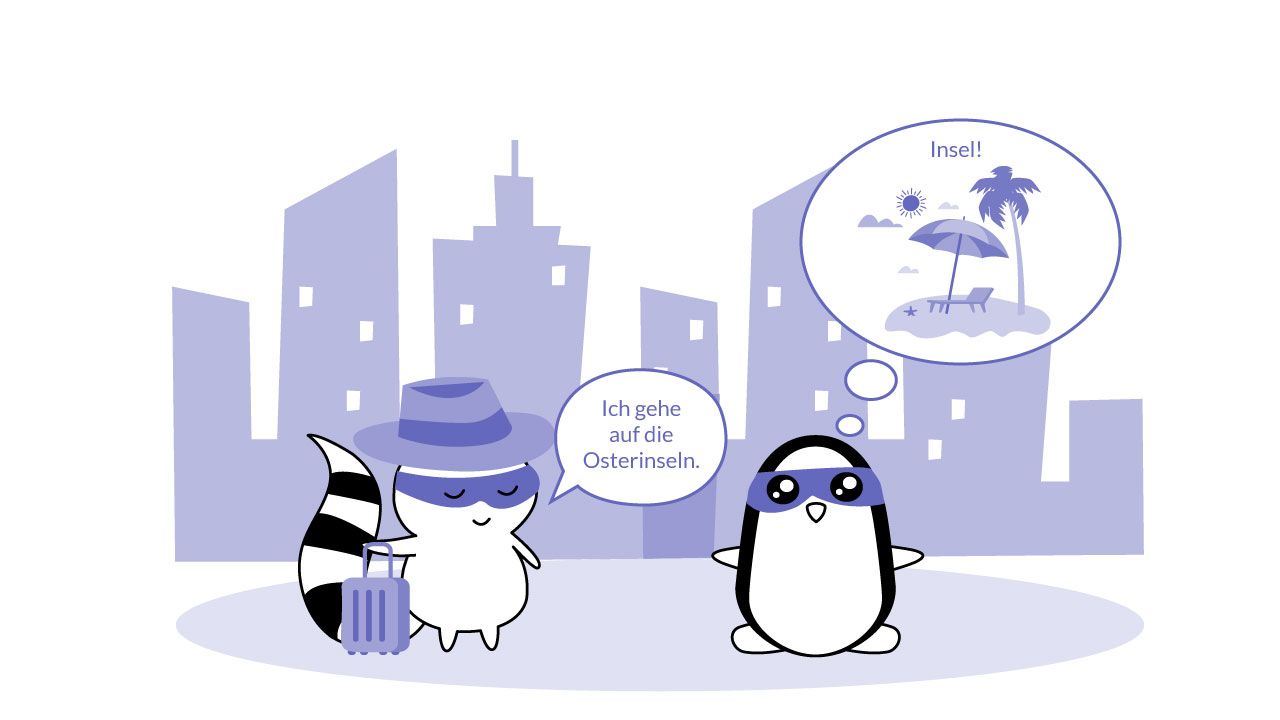
Names That Sound Very Different
You will also find some countries' names that look very different from what you know in English. That is due to their direct translations in the German language. "Great Britain," for example, translates as "Großbritannien" in German. Even though "great" looks very different from "groß," it has the same meaning.
The same happens with "the Netherlands," which is "die Niederlande" in German, or with the examples mentioned above, such as "Vereinigtes Königreich" (United Kingdom).
Different Country Names but Same Endings
When learing German, some rules can make it easier for you to learn new vocabulary. If you understand how they work, you can anticipate and derive many words in German from other languages like Spanish, French, or English.
Almost all languages work this way. For example, in English and Spanish, you have the suffix -ia which you will use for most of the countries' names. Examples are Albania, Russia, and Bolivia. If you know how to, you can easily transform them into German country names.
The Ending ien for Countries in German
Usually, the countries, which in English end in -ia, in German end with -ien. You can see this in "Albanien" (Albania), "Bolivien" (Bolivia), or "Kroatien" (Croatia). Unfortunately, you can not always trust this rule.
One exception is "Austria," which instead of becoming "Austrien" translates as "Österreich" in German. Furthermore, many countries in Africa like Kenia, Somalia, etc. in German do not change but are spelled and pronounced the same way as in English.
However, many country names work with -ien in German, even though the country might have a different name in English. Here are some examples:
German
English
Argentinien
Argentina
Indonesien
Indonesia
Italien
Italy
Spanien
Spain
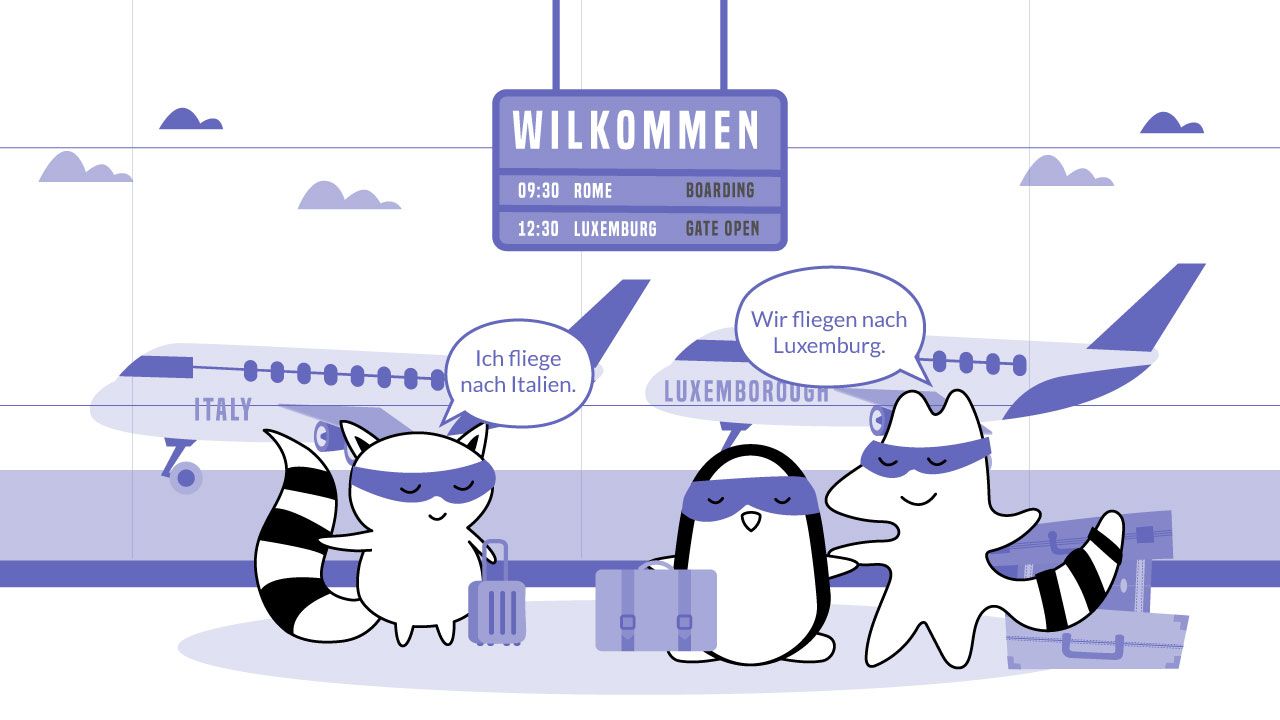
Many Countries End with -land in German
Like in English, you also have the suffix -land in German, which comes with several country names. For example, they say "Niederlande" (Netherlands), "Deutschland" (Germany), "Irland" (Ireland), "England" (England), and "Schottland" (Scotland).
As you see, there is just the spelling changing sometimes, but the words look mostly the same. As a result, you can translate the English country names to German easily in most cases, even though they are not always the same in both languages.
"Russia," for example, is "Russland" in German and not "Russien," as you might have thought after what we explained above. Also, "Switzerland" is "die Schweiz" and "Poland" is "Polen" in German, so there is no suffix like in English. Those exceptions you have to memorize, unfortunately.
Countries with Determined Article
In the example "die Ukraine," which we mentioned above, you find the feminine article "die." Some country names require using an article. As an example, in the English language, you have "the Netherlands," "the Bahamas," or "the Gambia."
In German this rule applies, for example, for "die Schweiz" (Switzerland), "die Vereinigten Staaten" (The United States), "der Iran," and "die Türkei." It is essential to learn these articles because countries with definite articles have different grammar rules.
A Short Grammar Class
In German, you usually say "Ich gehe nach England," which translates to "I go to England." As a result, the preposition you use in most of the cases is "nach" or “to.” Now, if you want to make a sentence with one of the countries that have an article in their name, you would say the following:
German
English
Ich gehe in die Schweiz.
I am going to Switzerland.
To say "I'm going to Switzerland," we have to use the preposition "in" (same as the English “in”) because of the article “die.”
It is a bit more complex with the masculine article "der" as it changes to its accusative form with the preposition "in." So, in the case of "der Iran," you would say "Ich gehe in den Iran" to say “I go to Iran."
From the Country to the Nationality
Making an adjective out of the noun is quite simple in terms of describing national identity. If you already know the country's name in German, finding the proper adjective is not so hard. Usually, the national adjectives use the suffix -isch in German.
You know it from the English language already: Adjectives that refer to nationality can end with -ish, like, for example, in "British." Other cases in English can have the endings -ian, like in "Italian," or -ese, like in "Chinese." In German, it is always -isch.
Here are a few examples:
German
English
italienisch
Italian
chinesisch
Chinese
russisch
Russian
englisch
English
europäisch
European
brittisch
British
französisch
French
spanisch
Spanish
Just a few adjectives fall out of this scheme - for example, the adjective for "German," which is "deutsch."
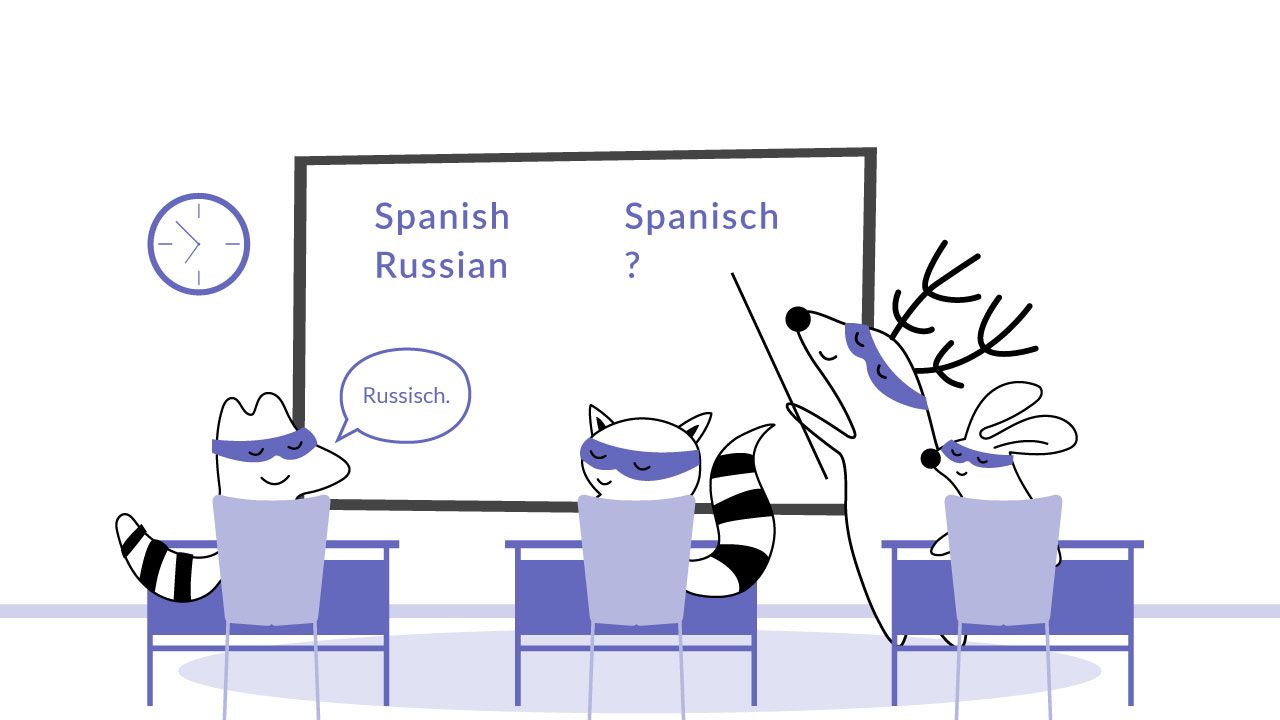
In Which Context Can You Use These Words?
The vocabulary we explained above is applicable in the context of language and nationality. You can say, for example, "Ich spreche Englisch" (I speak English), but also use it to describe a person. "She is English" would be then "Sie ist englisch" in German.
You may have noticed a difference in capitalization, that’s because in German all nouns are capitalized, but adjectives are not. In the first example, "Englisch" is the English language, which is why you capitalize it in German. In the second case it refers to the nationality "englisch," and so it’s an adjective that is not capitalized.
Let's Sum Up
The difference between "Deutschland" and "Germany" already shows you that countries can sound very different in each language. Nevertheless, lots of German vocabulary regarding countries can be learned without much effort. Just transfer your knowledge from the other languages and apply the German language rules we explained above.
It is no problem if you are not entirely sure how to use the German country names in the beginning, as there are a few exceptions that take some time to learn. The writing can be especially tricky as the differences are small, like "Irland" and "Ireland" or "Afrika" and "Africa."
To advance in your learning process, you must see and repeat new vocabulary as often as you can. If you’re trying to figure out how to learn by yourself, you can use a language learning application like Langster. There, you can read short yet engaging German stories taken from real life contexts, listen to them read out loud by native speakers, and master grammar rules.
Would you like to give it a try? Then don’t wait - start practicing right now and reinforce your knowledge.






